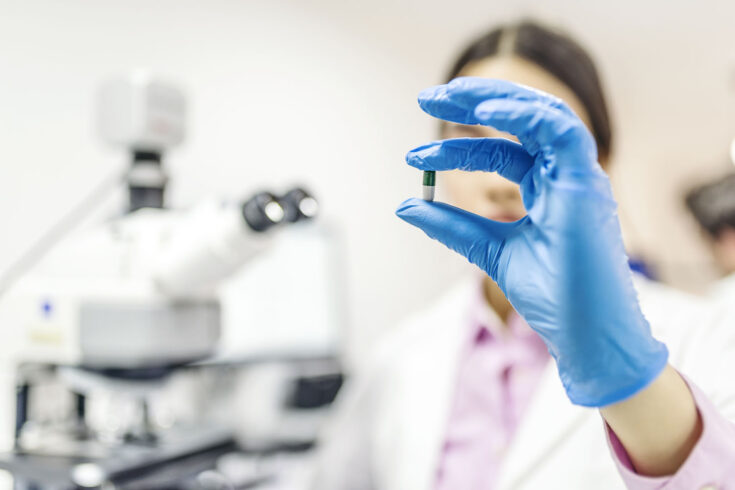What do you know about repurposing medicines? Probably more than you think. The term just means giving people a drug for a different purpose to the one it has originally been designed or used for. This happens more commonly than you might realise.
One of the most infamous examples is that of Viagra (sildenafil). The little blue pills that are now used to treat erectile dysfunction, but which were originally developed for angina and high blood pressure. Sildenafil may yet prove to be a total wonder-drug. Over the past 25 years it’s been tested, with varying success, for conditions including cancer, neurodegenerative diseases and COVID-19.
Repurposed treatments for COVID-19
Repurposing holds the potential to find treatments for medical conditions significantly faster and more cheaply than developing new drugs, because safety data is usually already available.
It has been essential in the fight against COVID-19. Without the luxury of time to develop new treatments from scratch, researchers around the world searched their medicine cabinets for other drugs that might work against the virus and its symptoms.
The RECOVERY trial has tested many existing drugs, within a matter of months, and provided evidence that some cheap, widely-available drugs can save lives. For example, dexamethasone, which is already used for skin conditions, allergies, nausea and autoimmune diseases, was found to reduce deaths in the sickest COVID-19 patients.
Helping to navigate the repurposing pathway
Together with the medical research charity, LifeArc, we saw an opportunity to set out a clearer path for drug repurposing and guide researchers through their repurposing journey.
We have developed an online resource, the Medicines Repurposing Toolkit, which outlines the necessary steps and considerations in the repurposing process, and signposts to useful information and contacts.
Faster and cheaper, for patient benefit
Professor Patrick Chinnery is the Medical Research Council’s (MRC) Clinical Director and a neurologist and professor of neurology at the University of Cambridge. He works on rare mitochondrial diseases and is leading three studies using repurposed drugs to explore disease mechanisms and test treatments.
Professor Chinnery said:
The major opportunities presented by repurposing are speed and low cost. For new drugs, going from the original concept to impact in the health system can take 15 to 20 years. Repurposing offers an opportunity to do that much faster.
Repurposed medicines also have a wealth of safety data already available. Expensive pre-clinical and clinical work can be streamlined, keeping development costs lower. This is valuable within the cash-strapped NHS, but also means treatments are more likely to reach patients in need globally, including in lower-income countries.
Understanding the challenges
While the benefits of repurposing are clear, it’s not always a straightforward process. We’ve spoken to many researchers who have come up against hurdles or delays in their repurposing projects. Sorting out intellectual property on drugs can get complicated. Securing funding or investment for the work can be a challenge.
Often it can be hard to garner commercial interest because the returns for investors will be low. And it’s vital to understand up-front what evidence regulators and clinical commissioners need to see, to save time and avoid having to repeat experiments.
Practical support
MRC and LifeArc’s Medicines Repurposing Toolkit is designed to highlight these considerations at an early stage. The aim is to enable researchers, patient groups and charities to plan repurposing projects with the greatest chance of success.
Professor Chinnery added:
Having learned the challenges of repurposing the hard way, I think this toolkit is enormously practical and valuable.
Find out more
The MRC LifeArc Medicines Repurposing Toolkit is free for all to explore and will be updated over time following feedback from users.
More information on funding for repurposing projects, including the MRC-funded Developmental Pathway Funding Scheme and Efficacy and Mechanism Evaluation programme can be found in the toolkit.
The MRC Regulatory Support Centre acts as a hub for advice and resources around research using human participants, their tissues, or data.
Top image: Credit: ljubaphoto, E+ via Getty Images




